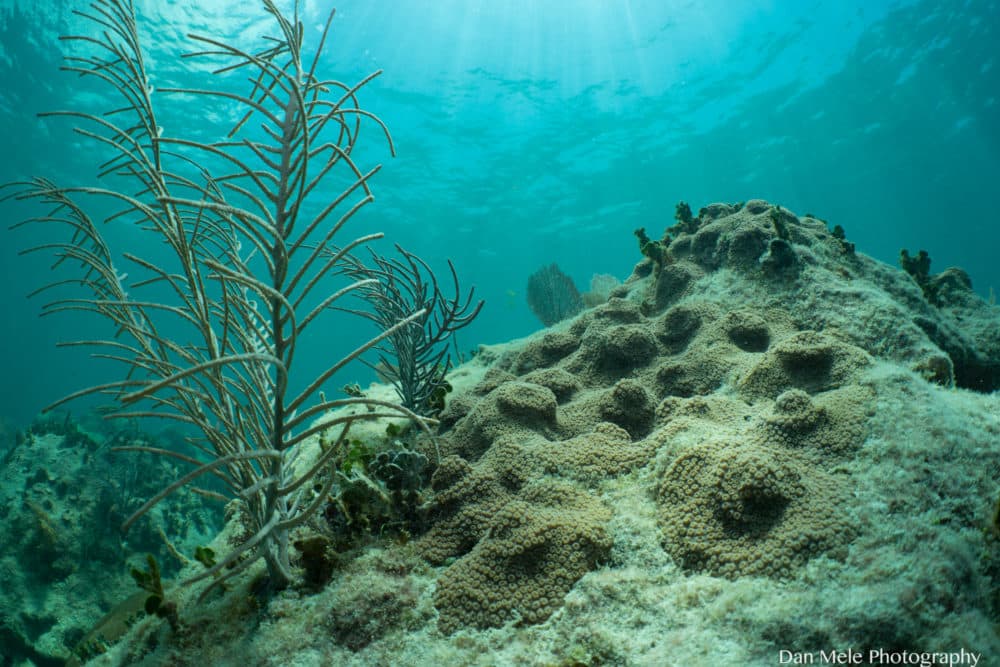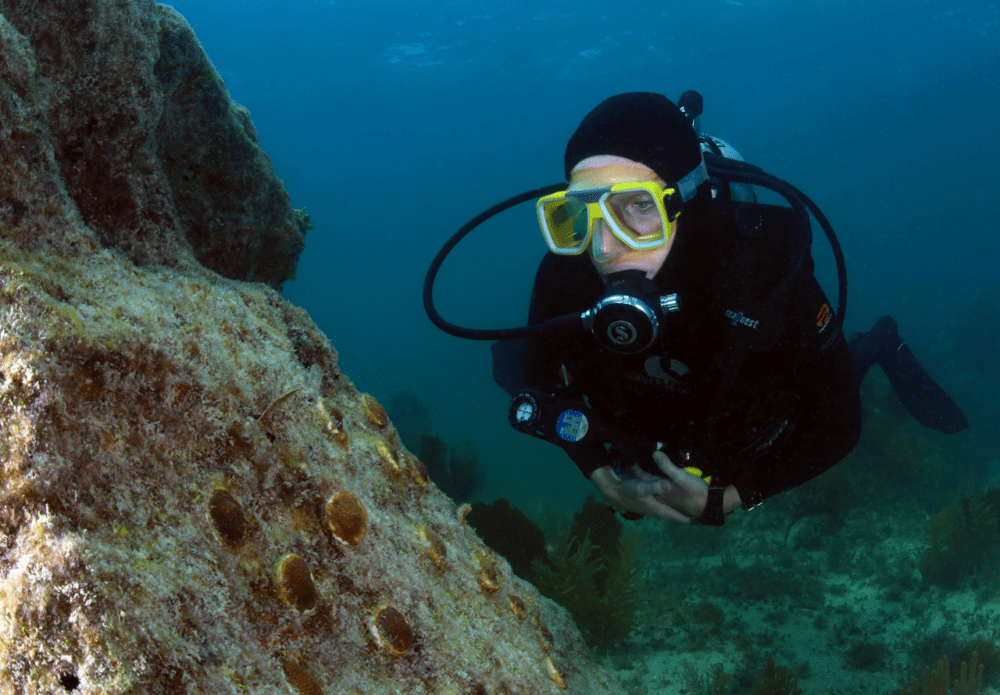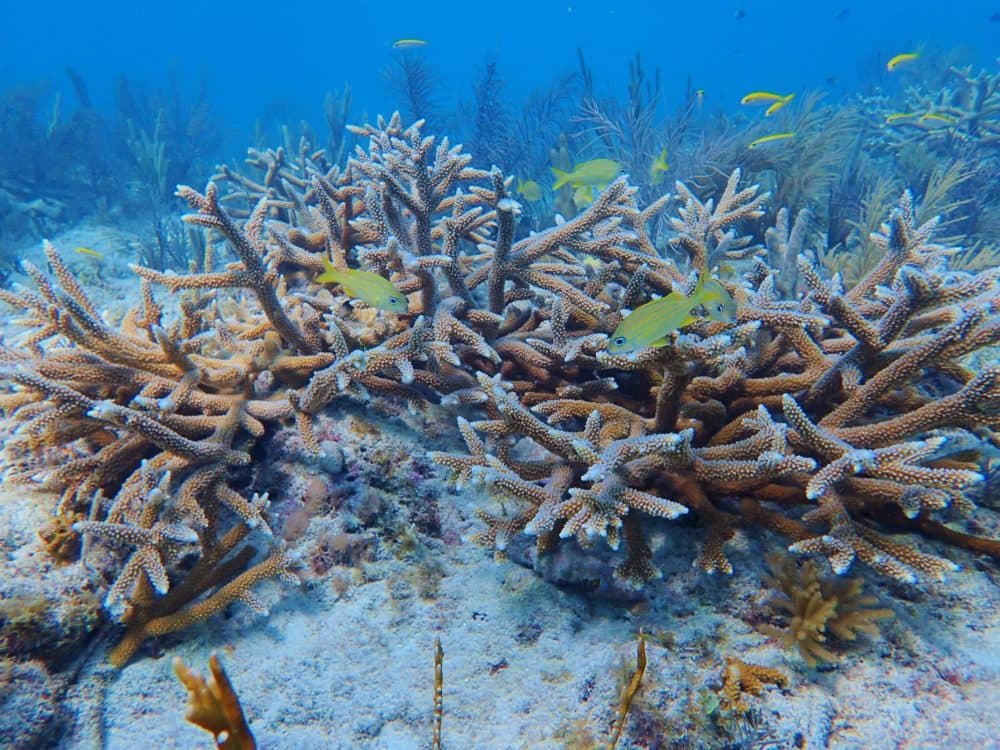Advertisement
Scientists Race Against Time To Save Coral Off Florida Keys
Resume
Scientists reached a major breakthrough recently in their efforts to restore coral off the coast of the Florida Keys.
Researchers in South Florida have figured out a way to get coral to spawn more rapidly, which is notable because much of the coral in the Florida Reef Tract is dying. Over the last 40 years, nearly 90% of the live corals that once covered those reefs have died off.
Scientists are using a technique called microfragmentation or reskinning to get coral to reproduce, says Sarah Fangman, superintendent of the Florida Keys National Marine Sanctuary, which is leading a 15-year, $100 million project to restore the coral.
“The Florida Reef Tract is the only barrier reef system that we have in the United States. The only one,” Fangman says. “It's in my view, on par with the Grand Canyon, with Yosemite [National Park] in terms of it being a national treasure.”

This reskinning technique involves taking tiny pieces of coral tissue and placing those all around the coral rock, mimicking pepperoni on a pizza, Fangman explains. Those pieces of tissue are genetically identical, which means they will grow together into a single individual colony and reproduce much quicker than if that colony started from a single piece of tissue growing naturally.
“Naturally, a coral would take decades to get to the age where it could reproduce,” she says. “But using this technique, scientists have discovered that they can get corals to reproduce in as few as five years, which is really fantastic given the state of our reefs around the world.”
The Florida Reef Tract is critically important in helping protect the coastline of the low-lying Florida Keys, Fangman says. The coral reef is also a huge economic driver as a tourist attraction and helps serve fisheries.

Rising temperatures and water pollution are the main factors killing coral reefs, Fangman says. “An unprecedented multi-year coral disease event” is also devastating the Florida Reef Tract, “so it’s a hard time to be a coral,” she says.
Some critics of the project have suggested it could be a waste of time to put out new corals when the corals that already exist are dying. But Fangman argues that we need to be doing both at the same time: addressing climate change and rebuilding coral reefs.
“We need to be addressing climate change. We need to be making our water quality better,” she says. “But we cannot wait until we solve those problems to also help the resilient and resistant corals that still exist to continue to survive out there. We cannot wait. We just cannot wait. This system is too important.”
Lynn Menegon produced and edited this interview for broadcast with Peter O'Dowd. Samantha Raphelson adapted it for the web.
This segment aired on September 18, 2020.

